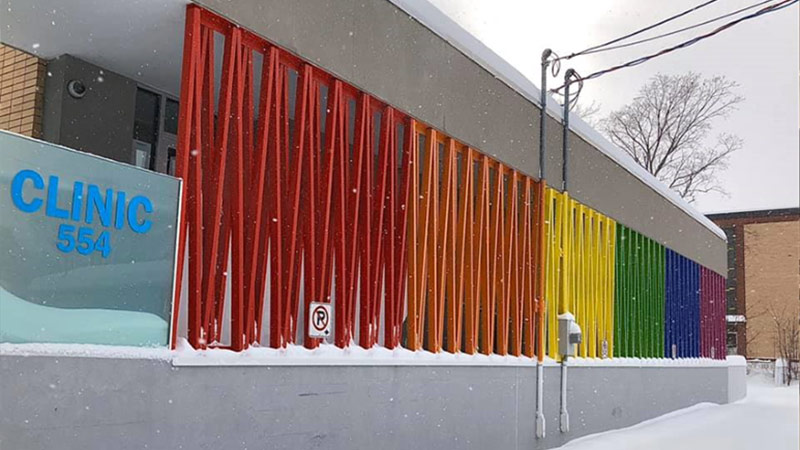UNB research team releases findings on abortion access in New Brunswick
Author: Jeremy Elder-Jubelin
Posted on Nov 13, 2023
Category: UNB Fredericton , UNB Saint John , Research

Clinic 554 in Fredericton. Photo: Val Edelman
Researchers at the University of New Brunswick (UNB) have released the results of a major study on abortion access in New Brunswick. Their report, which covers the period of 2015 to the present, concludes that significant barriers remain in providing equitable access to procedural abortions, which are also called surgical abortions.
“The lack of access to these services affects all people living in New Brunswick, but it hits some folks much harder than others,” says Dr. Tobin LeBlanc Haley, assistant professor of sociology at UNB. “People living in rural areas, francophones in the province, single parents, low-income people and those without access to a New Brunswick Medicare card continue to face the most significant barriers.”
Haley, Dr. Jessi Taylor, and Dr. Jula Hughes, formerly a professor of law at UNB and now dean of law at Lakehead University, co-led the study, which was launched in 2021 with funding from Health Canada.
In their report, the researchers identify many factors that make it more difficult for New Brunswickers to access procedural abortion services, including the lack of public funding for procedural abortions in clinics and inadequate public health information. And they say these barriers disproportionately affect equity-seeking populations.
To illustrate these ongoing barriers to access, the researchers point to a finding that more than 60 per cent of clinic abortions at Clinic 554, an inclusive family practice that also provides abortions for a fee, occur before the ninth week of pregnancy. In contrast, only 30 per cent of hospital abortions countrywide are done in that same time frame.
“We can tell that even with funded hospital abortions in Moncton and Bathurst and Medicare care coverage for medical abortions, access is not sufficient, as people continue to pay out of pocket for procedural abortions at Clinic 554,” says Taylor. “Additionally, close to 10 per cent of these costs have to be fundraised or provided pro-bono because the patients themselves cannot afford to pay.”
The researchers note that alongside costs to the patient, the provincial government’s policy of not funding clinic-based abortions results in significant access delays and is a practice out of step with much of the rest of the country.
“The Supreme Court in the Morgentaler case in 1988 found that causing delays made the law at the time unconstitutional, and yet, here we are in 2023, with New Brunswick regulations causing delays in abortion access,” says Hughes.
The study also highlights significant gaps in the data collected by the provincial government, which the authors argue inhibit policy decisions from being properly informed by evidence. The researchers found that there were more than 1,000 procedural abortions provided by Clinic 554 between 2015-2022, a number the province does not track because Medicare does not cover the abortions.
From this new data and understanding, the research team made several recommendations for improving abortion access. They recommend the government cover clinic abortions under Medicare. They also recommend the federal government collaborate with provinces and territories to improve rural access and address access barriers for equity-deserving groups.
The views expressed in the report do not necessarily reflect the views of Health Canada.
